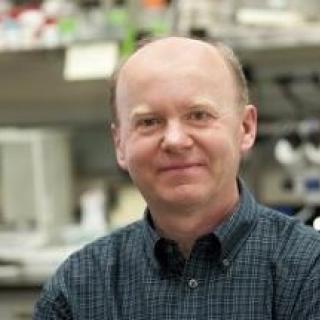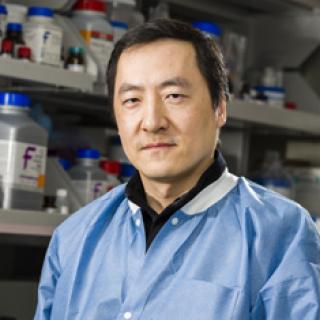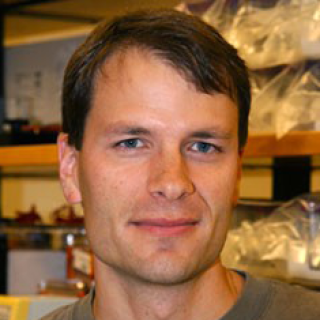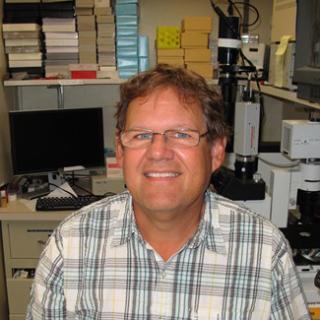Mouse Cancer Genetics Program
Mouse Cancer Genetics Program
About
The Mouse Cancer Genetics Program (MCGP) was established in 1999 and is currently directed by Dr. Lino Tessarollo. Dr. Shyam Sharan is Deputy Director. Members of the MCGP use molecular mouse genetics as a primary tool to better understand the fundamental processes underlying mammalian development and disease. Major areas of focus include developmental mechanisms and pathways usurped in cancer, stem cell and cancer-propagating cell function, genome integrity control, tumor suppressor function, transcriptional and epigenetic regulation, hematopoiesis, neurotrophin-activated signaling pathways, angiogenesis and proteomic instability in cancer.
Recombineering Technology. The MCGP provides training and guidance not only to CCR investigators but also to scientists worldwide in the use of the recombineering technology (Sharan et al. 2009, Nat Protoc. 4:206-223). This technology allows cloned DNA to be manipulated in E. coli by homologous recombination rather than by restriction enzymes and DNA ligases. This technology, which is continually being improved, is being used by hundreds of laboratories throughout the world and makes it possible to perform functional genomic studies on a scale that was difficult if not nearly impossible in the past. For more information about Recombineering Reagents and how to order reagents click here
Tumor Angiogenesis Unit. Tumors depend on neovasculature for expansive growth and metastasis. Anti-angiogenic therapies that block the VEGF/VEGFR pathway have become a common component of cancer treatment strategies but are limited by the existence of VEGF-independent angiogenesis mechanisms. The goal of the Tumor Angiogenesis Unit is to better understand and exploit these VEGF-independent angiogenesis mechanisms. This group pioneered the development of methods to uncover molecules expressed on tumor vasculature. This new molecular information on tumor angiogenesis is being used to develop clinically useful agents for improved diagnostics and therapeutics of cancer. The Tumor Angiogenesis Unit is led by Dr. Brad St. Croix
Neural Development. The Neural Development Section is headed by Dr. Lino Tessarollo, who joined the MCGP in 1999. His laboratory studies neurotrophins and their receptors in development and disease. These genes are critical players in the development of the nervous system of vertebrates and have attracted great interest as potential therapeutic targets for the management of neurodenerative disorders. Trk receptors are also frequently overexpressed in human cancers, particularly those with aggressive behavior and poor prognosis. Thus, while suppression of Trk-activated pathways may contribute to tumor management, strategies aimed at improving neurotrophin-mediated activities may also be beneficial to the control of neurodegenerative diseases. Dr. Tessarollo's laboratory focuses on the identification of specific neurotrophin-activated pathways that affect cell survival but do not affect cell proliferation. This information is then used to generate animal models in which the effects of these mutations on normal development and function of the nervous system can be studied. The aim of Dr. Tessarollo's research is to generate in vivo data that may lead to a better pharmacological use of neurotrophins to control cell proliferation and differentiation.
Genetics of Cancer Susceptibility. The Genetics of Cancer Susceptibility Section is headed by Dr. Shyam K. Sharan, who joined the MCGP in 1999. Mutations in the BRCA1 and BRCA2 genes play an important role in the development of early-onset familial breast cancer. The goal of this section is to carry out functional dissection of these genes using a mouse model system. Since there was no good functional assay for studying the in vivo effects of the large documented collection of human BRCA1 or BRCA2 mutations, they generated bacterial artificial chromosome (BAC) transgenic mice carrying the wild-type human BRCA1 and BRCA2 genes. These transgenes were then introduced into mice that lacked the endogenous Brca1 or Brca2 genes. In each case, the human genes rescued the lethality normally associated with the loss of both copies of the mouse Brca genes. Transgenic humanized mice now provide a valuable model system for understanding the functional significance of disease-associated mutations identified in human BRCA1 and BRCA2 patients. That is, specific mutations are introduced into the respective BAC and the BACs are then introduced into the germ line of mice lacking the endogenous Brca gene. The mice are then assessed for viability and characterized in many ways, including determining whether tumors develop. Although the humanized mice are excellent in vivo models for understanding the functional significance of the human mutations, they are not ideally suited for characterizing a large number of mutations. Therefore, members of the section are developing a new embryonic stem (ES) cell-based functional assay that should make it possible to rapidly screen large numbers of mutations. The long-term objective of this research is to comprehensively delineate the biological function of BRCA1 and BRCA2. In doing so, they hope to understand how the mutations that are scattered throughout the length of these genes lead to cancer.
Dr. Sharan is also Director of the Center for Advanced Preclinical Research (CAPR) and heads the BRCA Variants Analysis Unit.
Eukaryotic Transcriptional Regulation. The Eukaryotic Transcriptional Regulation Section is headed by Dr. Peter F. Johnson, who joined MCGP in 2013. Dr. Johnson was part of LCP before joining MCGP. His laboratory studies transcriptional mechanisms that regulate cell proliferation, tumorigenesis, and tumor suppression. Research involves a combination of biochemistry, cell biology, and mouse genetics to investigate the regulation and function of C/EBP transcription factors, focusing on their roles in Ras-induced oncogenic transformation and senescence.
Epigenetics. The Epigenetics Section is headed by Dr. Kathrin Muegge. In 2013, Dr. Muegge joined MCGP and prior to that she was part of LCP. The group investigates heritable chromatin modifications that are crucial for normal embryogenesis. Using a mouse model that shows defects in genomic methylation and histone tail modifications they study the effects of perturbed chromatin structure on gene silencing, imprinting, mitosis and tumorigenesis. Understanding molecular pathways of chromatin modifications should lead to better targeting of epigenetic dysregulations occurring in cancer development.
Proteomic Instability of Cancer. The Proteomic Instability of Cancer Section is headed by Dr. Chengkai Dai who joined MCGP in 2016 as a Stadtman Investigator. Dr. Dai's laboratory is a pioneer in the field of proteomic instability of cancer. The recent findings from his laboratory have revealed the intimate interactions between the proteotoxic stress response and RAS/MAPK-MEK signaling, cell cycle regulation, protein translation, as well as tumor-suppressive amyloidogenesis. His ongoing research focuses on the molecular mechanisms through which proteomic instability may affect genomic stability, cell invasion, and autophagy, areas which hold promise to unveil new molecular pathways that could be targeted in cancer therapy.
Adjunct Investigator
Molecular Mechanisms in Development. Dr. Esta Sterneck is an Adjunct Investigator with the Mouse Cancer Genetics Program. Dr. Sterneck is head of the Molecular Mechanisms in Development Section and her laboratory conducts basic research on the molecular biology of breast cancer development and progression with C/EBP transcription factors as pivots for our mechanistic studies. The laboratory uses genetic mouse models, human cell lines, patient-derived xenografts and patient samples for clinically relevant context. The long-term goal of the program is to molecularly define how breast cancer cells respond and adapt to various microenvironments for survival and how they also exploit these mechanisms for continued sustenance. In-depth understanding of these mechanisms may lead to better treatment strategies of metastatic disease in the clinic.
Scientist Emeriti
Dr. Jonathan R. Keller is a scientist emeritus who headed the Hematopoiesis and Stem Cell Biology Section. Dr. Keller is an international expert of transcriptional regulation of stem cell quiescence, survival, self-renewal, and differentiation. His main interest is understanding how commitment to specific lineages is programmed and cell specific patterns of gene expression are established. He has amply contributed to our knowledge on transcriptional regulators in myeloid cell development and their potential role in leukemogenesis.
Dr. David Salomon is currently a Scientist Emeritus with the Mouse Cancer Genetics Program. Dr. Salomon was the head of the Tumor Growth Factor Section and is interested in understanding the role of genes and signaling pathways that control mammary stem cells and in the maintenance and self-renewal of breast cancer stem cells. He was particularly interested in the function of Cripto-1/TDGF-1 in regulating stem cell functions and has shown that Cripto-1 is a potential therapeutic target in breast, colon and lung cancer.
PI & Key Staff
Principal Investigators
Adjunct Investigators
Job Vacancies
We have no open positions in our group at this time, please check back later.
To see all available positions at CCR, take a look at our Careers page. You can also subscribe to receive CCR's latest job and training opportunities in your inbox.
News
Learn more about CCR research advances, new discoveries and more
on our news section.
Contact
Contact Info
Center for Cancer Research National Cancer Institute
- Bldg. 560 Room 32-33
- Frederick, MD 21702-1201
- 301-846-6636










